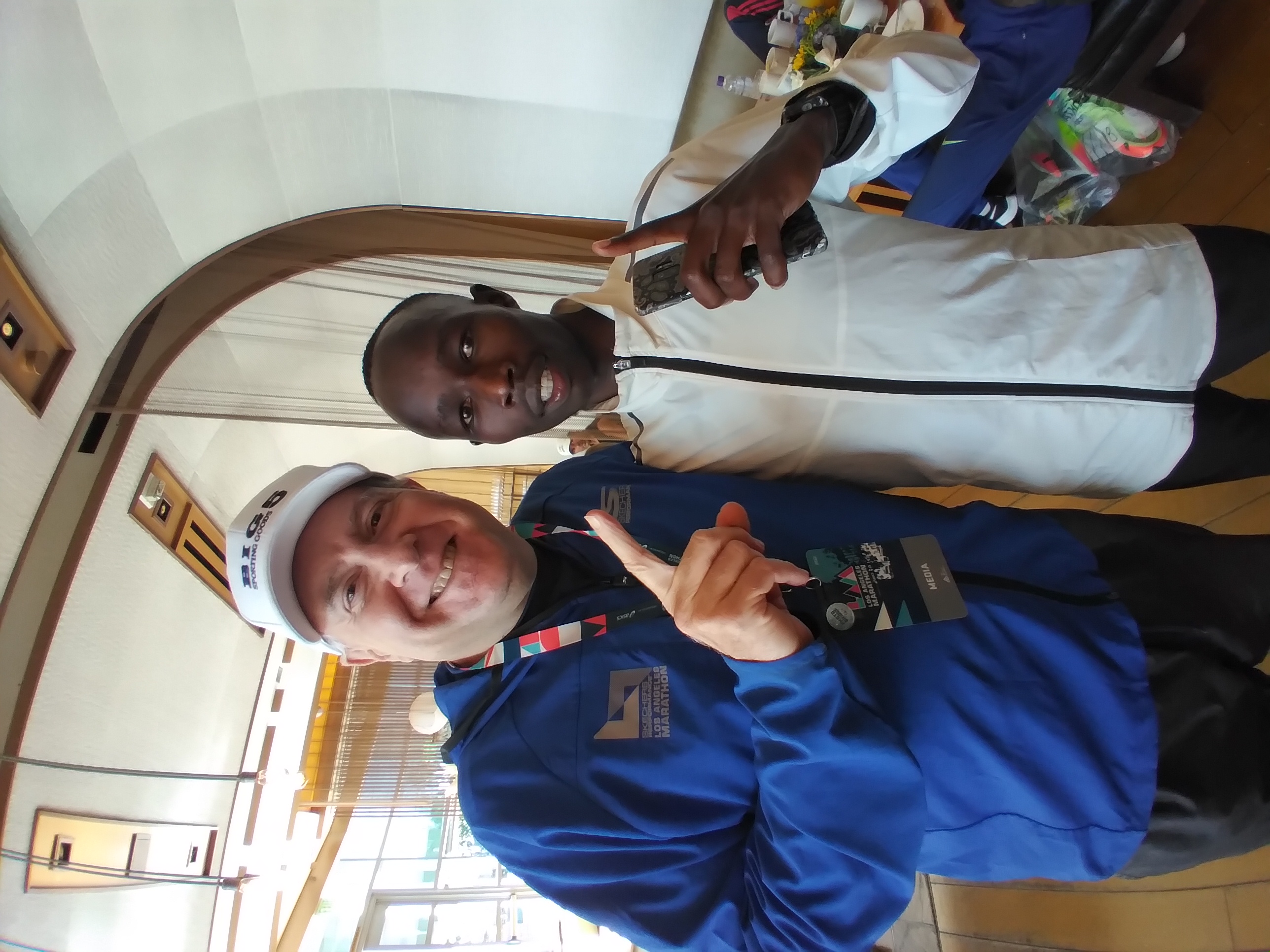
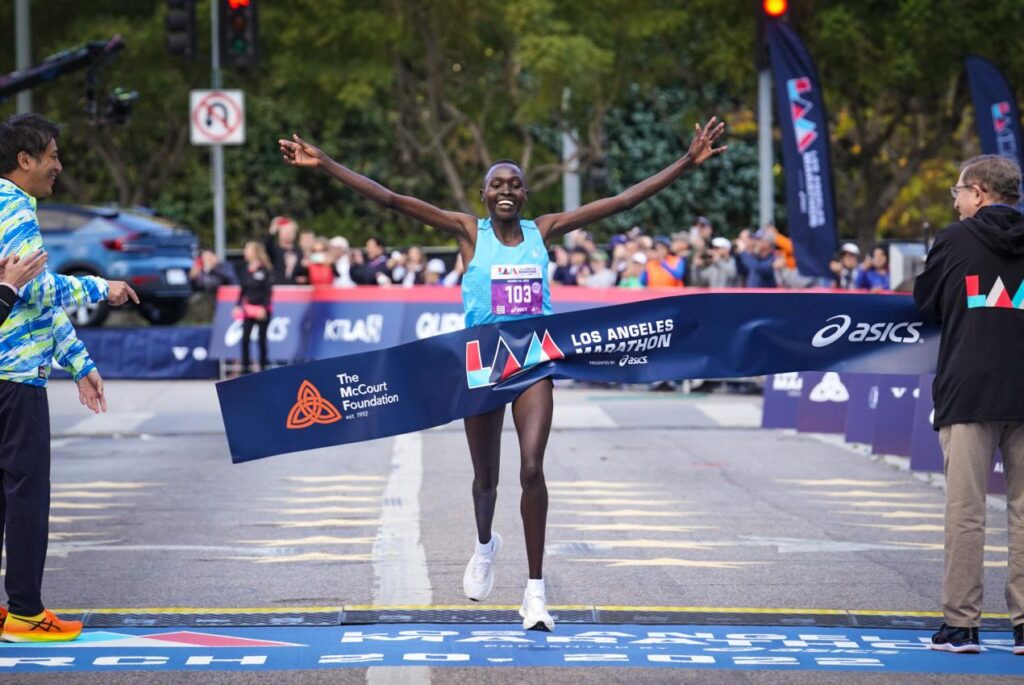
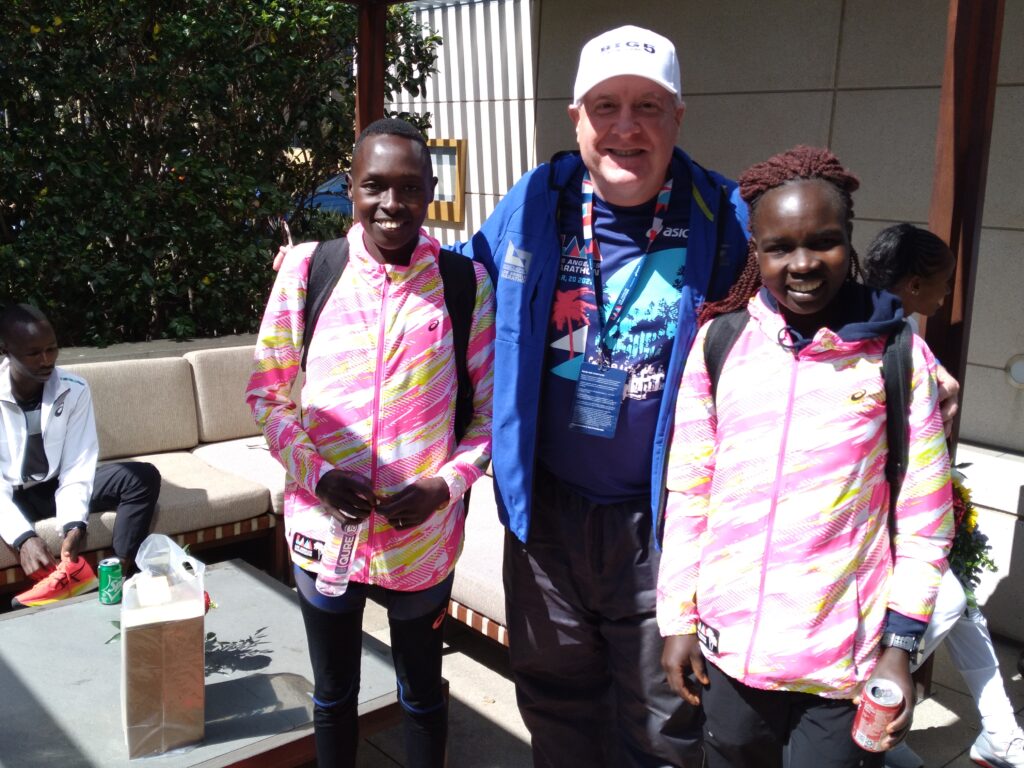
In the closing miles of the 2022 Los Angeles Marathon presented by ASICS, Kenya’s Delvine Meringor kept looking over her shoulder, and her countryman John Korir kept gaining ground. But in the home stretch along the Avenue of Stars, Meringor closed fast enough to reach the finish line first as Korir ran out of real estate.
Meringor not only won the women’s race in 2:25:04, but by outlasting Korir, the men’s winner in 2:09:08, she also earned a $10,000 bonus for winning the Quincy Cass Associates Marathon Challenge. The race-within-a-race was a revival of the marathon’s gender challenge that was a part of the event from 2004 to 2014.
More than 15,000 runners, walkers and wheelchair athletes participated in Sunday’s Marathon and the Charity Challenge 13.1 half marathon. All 50 states and more than 45 countries were represented in the marathon. Runners also raised money for more than 60 charities.
Approximately 2,600 Los Angeles-area high school and middle school students from the Students Run L.A. program ran the race. Based on past results, 99 percent of the students who participate in the program finish the marathon, 95 percent attend college and 85 percent are first-generation college students in their family.
The 2021 Los Angeles Marathon was held on Nov. 7, just 133 days ago. “We were thrilled to bring the marathon weekend back to the spring,” said Murphy Reinschreiber, the Marathon’s Chief Operating Officer. “The pandemic forced us to reschedule the 2021 race, but we believe the marathon’s true place is in the spring.”
The marathon challenge for the winner-take-all bonus made for a compelling story. The elite women’s field was given a 16-minute, 5-second head start on the men from the Dodger Stadium starting line.
While the top group of women started out at a modest pace, the men’s pack, led by Korir, was blazing from the start. Meringor picked up the pace along the way and dropped the four other women who ran with her through 16 miles and held on to finish with a 9-second advantage over Korir.
The men’s and women’s finishes were so close that race officials barely had time to reset the finish line tape for Korir. But perhaps fittingly, in Women’s History Month, it was Meringor, a 29-year-old runner competing in her second marathon, who was handed the oversized paycheck.
“I didn’t know I was going to win,” said Meringor, who is a native of Kenya but has applied for Romanian citizenship. “I could see he was almost closing on me. Then, he didn’t close on me again.”
At 24.8 miles, Korir was on pace to win by 28 seconds. There was one problem. The men had started at a blistering, sub-2-hour pace by running the first 5K in 13:32 (or 4:21 mile pace). In the end, it exacted a cost on Korir, who said he knew at the 40K mark wouldn’t be able to catch Meringor. “My legs were not moving anymore,” he said.
“The whole point was to get people to watch TV,” said Toni Reavis, who provided color commentary on the KTLA broadcast for the 37th consecutive year. “In the TV business you have to ask, ‘Why are they watching?’ You have to give them reason to watch. We gave them a reason to watch.”
It was Reavis, along with marathon officials, who studied the elite athletes’ personal bests and set the women’s handicap at 16 minutes, 5 seconds. The women now lead the series 8-4.
“We’re thrilled to help bring back this exciting element to the Los Angeles Marathon,” said Quincy Cass Associates CEO Mark Minichiello. “It highlights the talented runners of both the women’s and men’s fields pursuing their high-performance goals, but what makes it really exciting is that anyone can win it.”.
After the race, we were celebrating in the VIP Craft Dinner Restaurant in Century Park with all the medal winners, VIPS, and top athletes. In the below photo you can see on the extreme left: The Men’s Bronze Medal Winner: Ethiopia’s Bronze Medal Winner – Berhanu Bekele Berga with his fellow countrymen, and myself as I am pointing to the Team Ethiopia’s Coach’s shirt, that is of the legendary Ethiopian marathon runner Abebe Bikila, who was a back-to-back Olympic marathon champion. Abebe won the gold medal at the 1960 Summer Olympics in Rome while running barefoot, and then at the 1964 Tokyo Olympics, he won his second gold medal. In turn, he became the first athlete to successfully defend an Olympic marathon title. In both victories, he ran in world record time. & In the photo below that, you can see Ethiopia’s Coach, Me, and 2 top women runners from China:
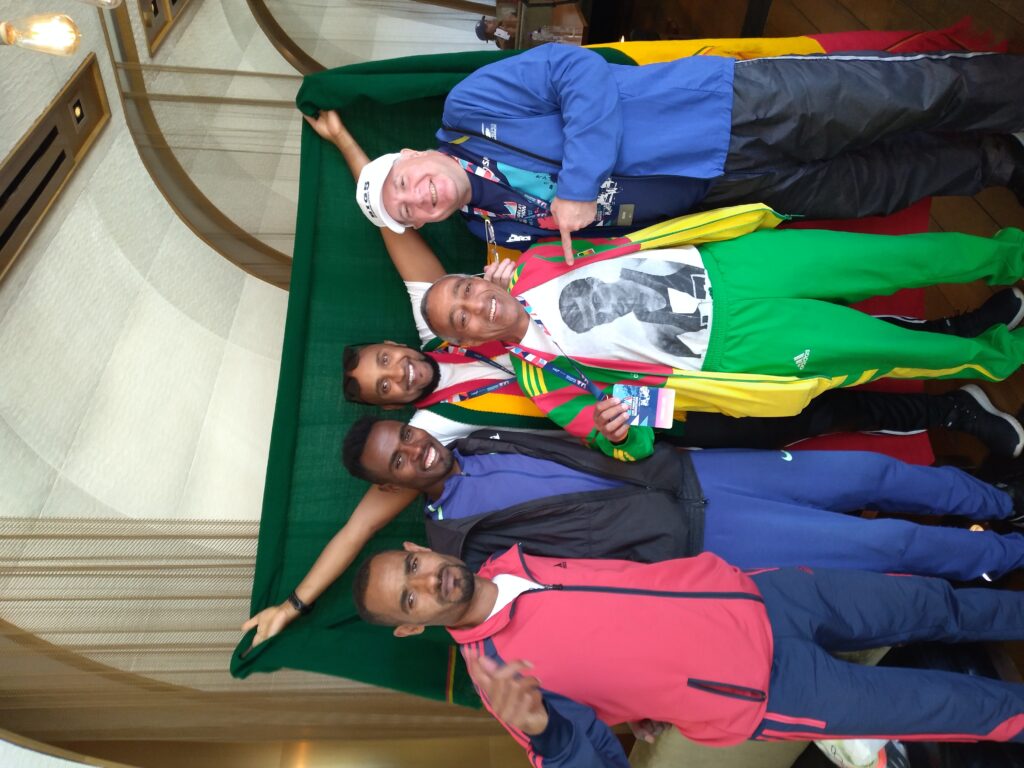
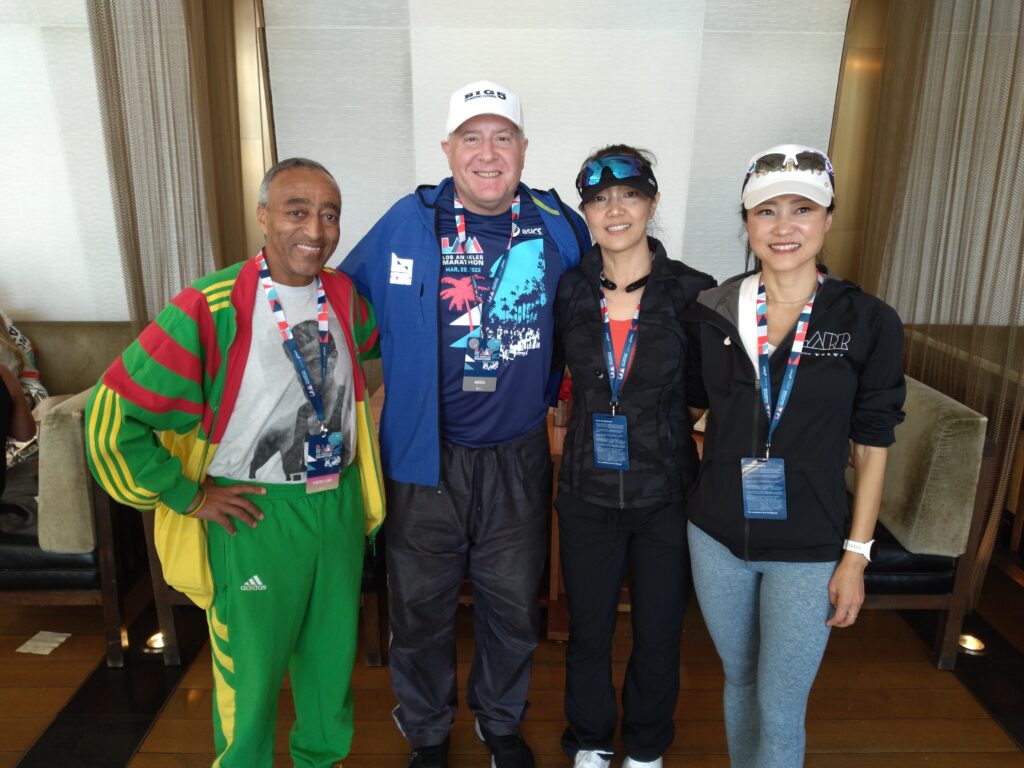
Edwin Kimutai, last year’s runner-up in the men’s race, finished second again this year in 2:10:43, followed by Ethiopia’s Berhanu Bekele Berga (3rd, 2:15:10), American Tyler McCandless (4th, 2:15:18) Kenya’s Elisha Barno (5th, 2:16:38)
Meanwhile, Kenya’s Antonia Kwambai repeated her second place showing from a year ago while finishing in 2:30:13. She was followed by Ethiopia’s Biruktayit Degefa (3rd, 2:31:28), Kenya’s Martha Akeno (4th, 2:34:02), American Amanda Phillips (5th, 2:35:06).
Both McCandless and Phillips qualified for the 2024 U.S. Olympic Marathon Trials, the fourth time McCandless has earned that distinction and the second for Phillips, as did Kevin Lewis, who placed sixth in 2:17:36.
“It was a great race out there,” said McCandless, who holds Ph.D. in meteorology and knows a bit about weather. “It was a little bit windy. I spent a lot of time racing alone, so it was a mental grind.”
“I’m proud of working through the hard parts of this course,” said Phillips, who set a new personal best time. “It’s definitely a course you have to be mentally tough on.”
Korir repeated as the men’s champion and matched his brother Wesley as a two-time Los Angeles Marathon champion. Like John, Wesley was a back-to-back champion, winning L.A. in 2009-10. At 25, John is 14 years younger than Wesley, who also won the 2012 Boston Marathon.
“It feels very, very good to win for the second time like my brother,” Korir said. “I knew I wanted to run fast and try to win from the start.”














